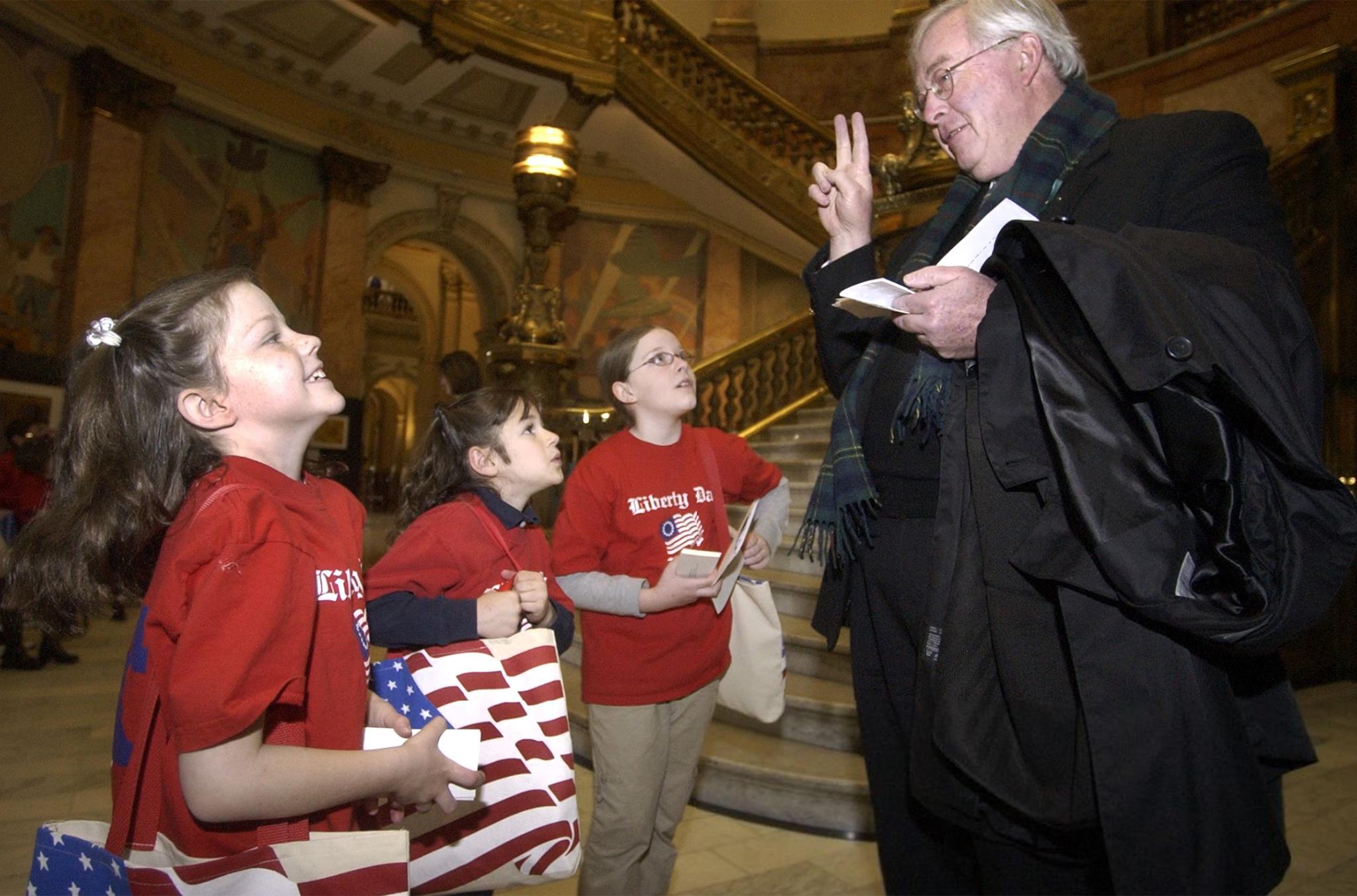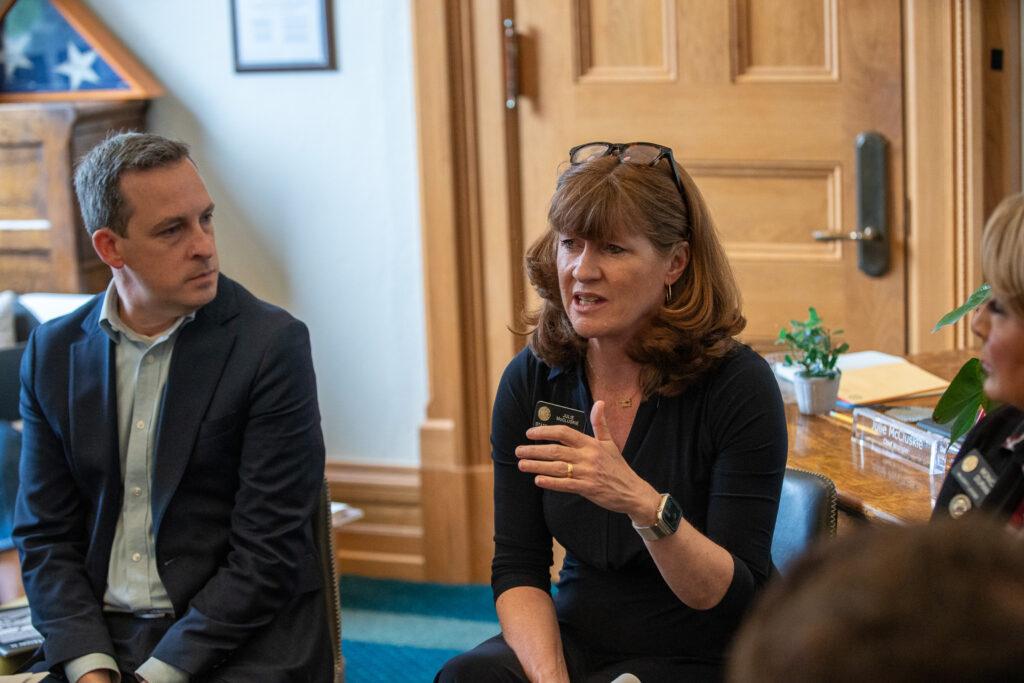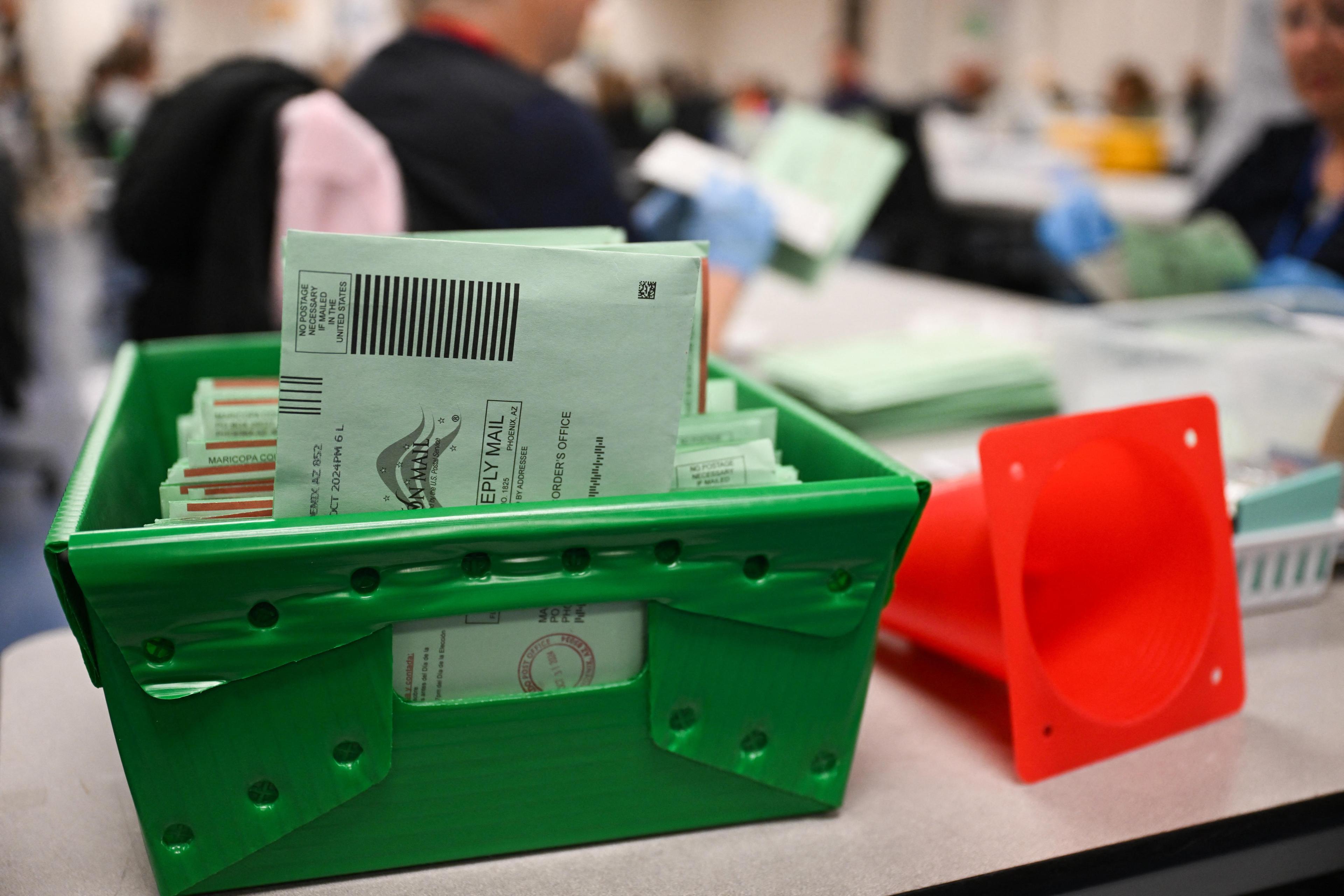
Colorado’s politicians are supposed to be gearing up for election season right now.
Instead, they’re spending most of this week in the stuffy Capitol building, where Republicans and Democrats are grumpily debating a property tax cut.
The roots of this unusual special session go back to an earlier election. In 2020, Colorado voters repealed a famous, or infamous, bit of the state constitution known as the Gallagher Amendment.
“They repealed Gallagher, and we've been working ever since to find the replacement. So that's why we're here,” said Democratic Rep. Bob Marshall, standing just outside the House chamber on Tuesday.
The Gallagher Amendment was in place for nearly 40 years. It acted as a hard brake on property taxes for homeowners. But it also combined with later laws to create a wave of consequences, both for property owners and the state’s finances.
At the time, the repeal was promoted by members of both parties. But it’s a move that still stirs bitter feelings, especially for some Republicans.
“This body broke our promise to the people that this body would give the taxpayers a solution to astronomical increases in property taxes,” said Republican Rep. Brandi Bradley in a committee hearing this week.


Why Gallagher was repealed in the first place
The Gallagher Amendment was approved by voters in 1982. It promised that Colorado’s homeowners would collectively pay no more than 45 percent of the state’s total property taxes. Other types of property, like stores, offices and farms, would be on the hook for the other 55 percent.
The issue was that Colorado has added a lot of new homes, and existing homes have gained a lot of value — way more than other types of property.
By 2020, residential property made up roughly 80 percent of the state’s total tax value. To ensure that translated to less than half of taxes paid, the state had to continually slash residential taxes, while keeping commercial taxes high.
Today, residential tax rates are about a quarter of non-residential tax rates. Residential owners collectively saved about $25 billion in taxes over the years Gallagher was in place.
The erosion of residential tax rates had different effects in different communities. In big cities like Denver, the lower rates were somewhat balanced by rapid development and higher property values. Those liberal communities were also able to convince local voters to set locally higher tax rates.
But at the same time many rural areas suffered under Gallagher, since they could not rely on development and rising values to counter the cuts, nor could they easily raise their own local tax rates.
The bipartisan answer, which went to voters during the economic shocks of the pandemic, was to repeal Gallagher.
“The Gallagher Amendment is an unfair and outdated formula that will make it harder for Colorado to bounce back. Our small businesses can’t afford this tax increase now,” Gov. Jared Polis said at the time.
Fifty-seven percent of voters agreed. On the night of the vote, the amendment’s namesake, former state lawmaker Dennis Gallagher, himself told CPR News that tax tumult would soon follow. He predicted that it would end in a “California-type property tax revolution.” Gallagher died in 2022.


How the repeal is affecting the conversation now
After the 2020 vote, there would no longer be any automatic brake on tax payments.
And the results showed up immediately.
The years after the repeal saw a large surge in property values, a result of pandemic whiplash. When those values translated into tax assessments, many homeowners were looking at increases of 30 percent or more — a spike which previously would have been largely erased by Gallagher’s automatic rate cuts. (Voters in many local districts had also agreed to abolish other limits on taxes that might have slowed the rise.)
The legislature — and Colorado voters — have been grappling with the effects ever since. Year after year, outside groups have prepared to ask voters to lower tax rates. To head them off, the state legislature has passed its own rate changes and reductions.
Last November, Democrats asked voters to approve Prop. HH as a lasting solution — but it was rejected among widespread skepticism and confusion about its sprawling fiscal effects.
The situation came to a head this year, when a business-conservative alliance put forward a pair of ballot measures, in spite of the latest round of tax cutting by lawmakers.
Initiative 108 would slash tax rates, although not as deeply as if Gallagher were still in effect today. Initiative 50 would institute a new statewide cap on property taxes revenues — which members of both parties worried would bring back many of the problems that led to Gallagher’s repeal.
Both measures are currently on track to appear on the November ballot.
In response, Democratic and Republican leaders have agreed to make more limited changes, in exchange for the ballot measures being withdrawn. Both sides describe this year’s compromise measure as a lasting solution, a longed-for ceasefire in the property tax wars. The tax-cut campaigners have promised to back off for at least six years, if the deal holds.
“Is it a move to play defense right now? You bet,” said House Speaker Julie McCluskie, a Democrat, on Wednesday. “Today, we are making a move to protect Colorado from devastating ballot initiatives that would move us back.”
But does this compromise really amount to a replacement for Gallagher — and should it?
The special session bill does a couple things.
It modestly but permanently lowers the state’s property tax rates. That will amount to about $250 million of savings in total, which comes in addition to earlier cuts.
Most of the benefits are aimed at commercial and other non-residential taxpayers — a way to undo some of the relatively high rates they ended up paying under Gallagher.
“I do think it is a good compromise to bring forward balanced, good local government solutions, along with additional property tax relief to Coloradans,” said Rep. Rose Pugliese, the Republican House minority leader, at a committee hearing.
The bill also reinforces the idea that there should be a cap on how fast property tax payments increase, even in years where values are skyrocketing.
School districts and most local governments would face limits on how much their property tax revenues could grow in a year. For the local districts, tax revenues on existing developed property would be allowed to increase by up to 5.25 percent per year, excluding growth from things like new development. (This is an adjustment to a concept that was already written into law this spring.)
So, if property values exploded by 30 percent again, the government would have to grant discounts to ensure that tax bills only grow at a slower rate. Schools would face a similar but more generous limit. Their property tax revenues could grow by 6 percent, or more, based on inflation and enrollment.
Among conservatives, the idea of reintroducing caps is welcome, but some have questions about the numbers and the design of the new limits.
“How many taxpayers got an income increase of 6 percent? I would say, not a lot. How many had a 5.25 percent increase in their income? Probably not a lot,” asked anti-tax activist Natalie Menten, also a Jeffco commissioner candidate, who testified against the bill. “So how is it acceptable that we let government grow bigger faster than the people who are actually paying the bills for the government?”
On the other hand, some Democrats have critiqued the special session, saying that the legislature should not be forced into negotiations by outside groups, and that it should pay equally urgent attention to the struggles of renters. Despite the recent increases, Colorado has some of the lowest property tax rates in the country, as a result of Gallagher’s long history. (Democratic leaders counter that they passed a large slate of tax credits to benefit low-income families this year.)
Some Democrats at the statehouse also tried to create a kind of reverse-Gallagher — a potential constitutional amendment that would prevent any future statewide cuts to local property taxes. But that effort was withdrawn due to a lack of support in the Senate. It would have required approval by voters if it passed the legislature.
Rep. Bradley had her own idea: Bring back Gallagher. She introduced a measure that would have asked voters to put the amendment back in the constitution. She and other Republicans say that state lawmakers misled voters into repealing Gallagher without a replacement. That proposal was rejected with little discussion on Monday.
“Let’s just all be clear: The voters repealed Gallagher in 2020. That’s the voters speaking,” said Rep. Marc Snyder, a Democrat, on the House floor.
The special session will continue through at least Thursday.



